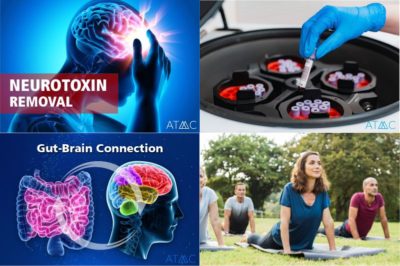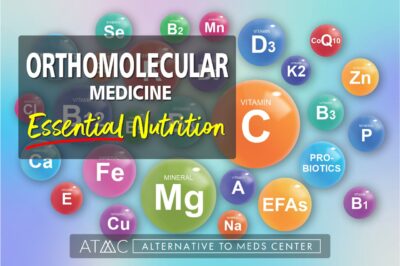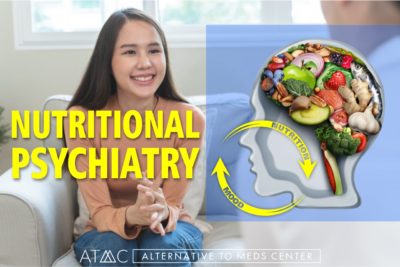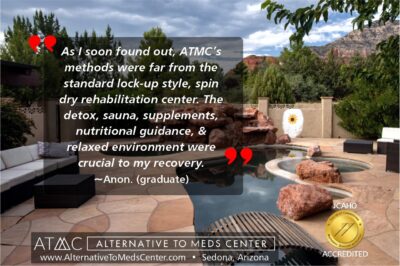1. Jacka FN, Sacks G, Berk M, Allender S. Food policies for physical and mental health. BMC Psychiatry. 2014 May 9;14:132. doi: 10.1186/1471-244X-14-132. PMID: 24884515; PMCID: PMC4026829. [cited 2022 June 21]
2. Baxter AJ, Patton G, Scott KM, Degenhardt L, Whiteford HA. Global epidemiology of mental disorders: what are we missing? PLoS One. 2013 Jun 24;8(6):e65514. doi: 10.1371/journal.pone.0065514. PMID: 23826081; PMCID: PMC3691161. [cited 2022 June 21]
3. “Nutrition may play a key role in early psychosis treatment” (Western Sydney University) published, 2017 Nov, Medical Press Psychology & Psychiatry [cited 2022 June 21]
4. Wang HX, Wang YP. Gut Microbiota-brain Axis. Chin Med J (Engl). 2016 Oct 5;129(19):2373-80. doi: 10.4103/0366-6999.190667. PMID: 27647198; PMCID: PMC5040025. [cited 2022 June 21]
5. Brown JS, “Introduction: An Update on Psychiatric Effects of Toxic Exposures.” Psychiatric Times Vol. 33, Issue 9 [online] 2016 Sep 30 [cited 2022 June 21]
6. Miyamoto, S., Duncan, G., Marx, C. et al. Treatments for schizophrenia: a critical review of pharmacology and mechanisms of action of antipsychotic drugs. Mol Psychiatry 10, 79–104 (2005). https://doi.org/10.1038/sj.mp.4001556 [cited 2022 June 21]
7. Acute Hypoglycemia Presenting as Acute Psychosis Tanveer Padder MD, Aparna Udyawar MD, Nouman Azhar MD, Kamil Jaghab MD From the Department of Psychiatry, Nassau University Medical Center, 2201 Hempstead Turnpike, East Meadow NY 11554 USA.First Published December 2005. [cited 2022 June 21]
8. Brady WJ Jr, Duncan CW. Hypoglycemia masquerading as acute psychosis and acute cocaine intoxication. Am J Emerg Med. 1999 May;17(3):318-9. doi: 10.1016/s0735-6757(99)90140-7. PMID: 10337905.[cited 2022 June 21]
9. Sathyanarayana Rao TS, Asha MR, Ramesh BN, Jagannatha Rao, “Understanding nutrition, depression, and mental illness.” Indian Journal of Psychiatry [Internet] 2008 Apr-Jun [cited 2022 June 21]
10. Aucoin M, LaChance L, Clouthier SN, Cooley K. Dietary modification in the treatment of schizophrenia spectrum disorders: A systematic review. World J Psychiatry. 2020 Aug 19;10(8):187-201. doi: 10.5498/wjp.v10.i8.187. PMID: 32874956; PMCID: PMC7439299. [cited 2022 June 21]
11. Environmental Exposures and Depression: Biological Mechanisms and Epidemiological Evidence Annual Review of Public Health Vol. 40:239-259 (Volume publication date April 2019) First published as a Review in Advance 2019 Jan 11 [cited 2022 June 21]
12. Collaborative on Mental Health and the Environment Mental Health and Environmental Exposures from the Learning and Developmental Disabilities Initiative, November 2008. [cited 2022 June 21]
13. Bové J, Prou D, Perier C, Przedborski S. Toxin-induced models of Parkinson’s disease. NeuroRx. 2005;2(3):484-494. doi:10.1602/neurorx.2.3.484 [cited 2022 June 21]
14. Farina M, Aschner M, da Rocha JBT. The catecholaminergic neurotransmitter system in methylmercury-induced neurotoxicity. Adv Neurotoxicol. 2017;1:47-81. doi:10.1016/bs.ant.2017.07.002 [cited 2022 June 21]
15. Understanding nutrition, depression and mental illnesses Indian J Psychiatry. 2008 Apr-Jun; 50(2): 77–82. T. S. Sathyanarayana Rao, M. R. Asha, B. N. Ramesh, and K. S. Jagannatha Rao [cited 2022 June 21]
16. Hoffer A, Osmond H. TREATMENT OF SCHIZOPHRENIA WITH NICOTINIC ACID. A TEN YEAR FOLLOW-UP. Acta Psychiatr Scand. 1964;40(2):171-89. doi: 10.1111/j.1600-0447.1964.tb05744.x. PMID: 14235254. [cited 2022 June 21]
17. Lakhan SE, Vieira KF. Nutritional therapies for mental disorders. Nutr J. 2008;7:2. Published 2008 Jan 21. doi:10.1186/1475-2891-7-2 [cited 2022 June 21]
18. Orthomolecular Treatment of Orthomolecular Schizophrenia Association of Great Britain; London, England, September 28-30, 1971. A. Hoffer, M.D., Ph.D., F.A.P.A. [cited 2022 June 21]
19. Christensen O, Christensen E, Fat consumption and schizophrenia Acta Psychiatrica Scandinavica [published November 1988] [cited 2022 June 21]
20. Amminger GP, Schäfer MR, Papageorgiou K, Klier CM, Cotton SM, Harrigan SM, Mackinnon A, McGorry PD, Berger GE. Long-chain omega-3 fatty acids for indicated prevention of psychotic disorders: a randomized, placebo-controlled trial. Arch Gen Psychiatry. 2010 Feb;67(2):146-54. doi: 10.1001/archgenpsychiatry.2009.192. PMID: 20124114. [cited 2022 June 21]
21. van der Heijden, F., Fekkes, D., Tuinier, S. et al. Amino acids in schizophrenia: evidence for lower tryptophan availability during treatment with atypical antipsychotics?. J Neural Transm 112, 577–585 (2005). [cited 2022 June 21]
22. Malcolm Peet, Eicosapentaenoic acid in the treatment of schizophrenia and depression: rationale and preliminary double-blind clinical trial results, Prostaglandins, Leukotrienes and Essential Fatty Acids, Volume 69, Issue 6, 2003, Pages 477-485. [cited 2022 June 21]
23. Mittal VA, Vargas T, Osborne KJ, et al. Exercise Treatments for Psychosis: A Review.Curr Treat Options Psychiatry. 2017;4(2):152-166. doi:10.1007/s40501-017-0112-2.[cited 2022 June 21]
24. Environmental Exposures and Depression: Biological Mechanisms and Epidemiological Evidence Annual Review of Public Health Vol. 40:239-259 (Volume publication date April 2019) First published as a Review in Advance on 2019 Jan 11 [cited 2022 June 21]
25. Kråkvik B, Gråwe RW, Hagen R, Stiles TC. Cognitive behaviour therapy for psychotic symptoms: a randomized controlled effectiveness trial. Behav Cogn Psychother. 2013;41(5):511-524. doi:10.1017/S1352465813000258 [cited 2022 June 21]
26. APA Div 12, Society of Clinical Psychology, “What is Exposure Therapy?” Clinical Practice Guidelines, [Internet] 2017 Jul [cited 2022 June 21]
27. Health Quality Ontario . Cognitive Behavioural Therapy for Psychosis: A Health Technology Assessment. Ont Health Technol Assess Ser. 2018;18(5):1-141. Published 2018 Oct 24. [cited 2022 June 21]
28. van den Berg DP, de Bont PA, van der Vleugel BM, de Roos C, de Jongh A, Van Minnen A, van der Gaag M. Prolonged exposure vs eye movement desensitization and reprocessing vs waiting list for posttraumatic stress disorder in patients with a psychotic disorder: a randomized clinical trial. JAMA Psychiatry. 2015 Mar;72(3):259-67. doi: 10.1001/jamapsychiatry.2014.2637. PMID: 25607833. [cited 2022 June 21]
29. Shona M Francey, Brian O’Donoghue, Barnaby Nelson, Jessica Graham, Lara Baldwin, Hok Pan Yuen, Melissa J Kerr, Aswin Ratheesh, Kelly Allott, Mario Alvarez-Jimenez Psychosocial Intervention With or Without Antipsychotic Medication for First-Episode Psychosis: A Randomized Noninferiority Clinical Trial
Schizophrenia Bulletin Open, Volume 1, Issue 1, January 2020, Published: 20 March 2020. [cited 2022 June 21]
30. Seikkula J, Olson ME. The open dialogue approach to acute psychosis: its poetics and micropolitics. Fam Process. 2003 Fall;42(3):403-18. doi: 10.1111/j.1545-5300.2003.00403.x. PMID: 14606203. [cited 2022 June 21]
31. Cannabis-Induced Psychosis: A Review Psychiatric Times, Vol 34 No 7, Volume 34, Issue 7July 14, 2017 Ruby S. Grewal, MD , Tony P. George, MD, FRCPC. [cited 2022 June 21]
32. Arendt M, Rosenberg R, Foldager L, Perto G, Munk-Jørgensen P. Cannabis-induced psychosis and subsequent schizophrenia-spectrum disorders: follow-up study of 535 incident cases. Br J Psychiatry. 2005 Dec;187:510-5. doi: 10.1192/bjp.187.6.510. PMID: 16319402. [cited 2022 June 21]
33. Rottanburg D, Robins AH, Ben-Arie O, Teggin A, Elk R. Cannabis-associated psychosis with hypomanic features Lancet. 1982 Dec 18;2(8312):1364-6. doi: 10.1016/s0140-6736(82)91270-3. PMID: 6129463. [cited 2022 June 21]
34. Kraal A, Z, Arvanitis N, R, Jaeger A, P, Ellingrod V, L: Could Dietary Glutamate Play a Role in Psychiatric Distress? Neuropsychobiology 2020;79:13-19. doi: 10.1159/000496294 [cited 2022 June 21]
35. Plitman E, Nakajima S, de la Fuente-Sandoval C, et al. Glutamate-mediated excitotoxicity in schizophrenia: a review. Eur Neuropsychopharmacol. 2014;24(10):1591-1605. doi:10.1016/j.euroneuro.2014.07.015. [cited 2022 June 21]
36. Leonardo Tondo, Nereide Rudas, The course of a seasonal bipolar disorder influenced by caffeine, Journal of Affective Disorders, Volume 22, Issue 4, 1991, Pages 249-251. [cited 2022 June 21]
37. Harrow M, Jobe T H, Faull N. Does treatment of schizophrenia with antipsychotic medications eliminate or reduce psychosis? A 20-year multi-follow-up study Published online by Cambridge University Press: 24 March 2014 [cited 2022 June 21]
38. Whitaker R. The case against antipsychotic drugs: a 50-year record of doing more harm than good. Med Hypotheses. 2004;62(1):5-13. doi: 10.1016/s0306-9877(03)00293-7. PMID: 14728997.[cited 2022 June 21]
39. Sohler N, Adams BG, Barnes DM, Cohen GH, Prins SJ, Schwartz S. Weighing the evidence for harm from long-term treatment with antipsychotic medications: A systematic review. Am J Orthopsychiatry. 2016;86(5):477-85. doi: 10.1037/ort0000106. Epub 2015 Dec 14. PMID: 26652608; PMCID: PMC4907881. [cited 2022 June 21]
40. Fenton WS, McGlashan TH. Sustained remission in drug-free schizophrenic patients. Am J Psychiatry. 1987 Oct;144(10):1306-9. doi: 10.1176/ajp.144.10.1306. PMID: 2889376. [cited 2022 June 21]
41. Muench, J, Hamer, A., “Adverse Effects of Antipsychotic Medications.” The Am Fam Physician [online] Am Fam Physician. 2010 Mar 1;81(5):617-622. [cited 2022 June 21]
42. FDA Label Invega (paliperidone) [online] [cited 2022 June 21]

 Removal of neurotoxic accumulations.5,11,12,13,14
Removal of neurotoxic accumulations.5,11,12,13,14 There are several scenarios where a person might want to consider Invega alternatives. One could be a person in their 20s, with symptoms such as hallucinations or disordered thoughts, etc., who is more interested in drug-free treatment options to mitigate their symptoms.
There are several scenarios where a person might want to consider Invega alternatives. One could be a person in their 20s, with symptoms such as hallucinations or disordered thoughts, etc., who is more interested in drug-free treatment options to mitigate their symptoms.
 One may have decided it is better to “put up with” these side effects as a trade-off for reducing or eliminating schizophrenic hallucinations, or other unwanted symptoms. But researchers have suggested that after long-term use, antipsychotics like Invega, Latuda, olanzapine, etc., stop working. Symptoms may return and in some cases, more intensified than before. After long-term antipsychotic use, one’s quality of life may be impaired significantly, which adds to the dilemma. The mechanisms of these medications have still not been fully identified. But researchers Miyamoto et al published an article in “Molecular Psychiatry” that takes an in-depth look at the long-term effects of various antipsychotic medications.6
One may have decided it is better to “put up with” these side effects as a trade-off for reducing or eliminating schizophrenic hallucinations, or other unwanted symptoms. But researchers have suggested that after long-term use, antipsychotics like Invega, Latuda, olanzapine, etc., stop working. Symptoms may return and in some cases, more intensified than before. After long-term antipsychotic use, one’s quality of life may be impaired significantly, which adds to the dilemma. The mechanisms of these medications have still not been fully identified. But researchers Miyamoto et al published an article in “Molecular Psychiatry” that takes an in-depth look at the long-term effects of various antipsychotic medications.6 According to historical as well as recent research, nutrition can play a key role in the early treatment of psychosis, schizophrenia, and other psychiatric symptoms. For example, blood testing found that a significant number of those suffering from first-onset schizophrenia and/or psychosis had extremely low levels of vitamin D9 (folate) and very large deficits of vitamin D right from the beginning of the person’s onset of symptoms. They also found that these missing elements were linked to worsened symptoms, especially in younger people diagnosed with psychosis or schizophrenic symptoms.3
According to historical as well as recent research, nutrition can play a key role in the early treatment of psychosis, schizophrenia, and other psychiatric symptoms. For example, blood testing found that a significant number of those suffering from first-onset schizophrenia and/or psychosis had extremely low levels of vitamin D9 (folate) and very large deficits of vitamin D right from the beginning of the person’s onset of symptoms. They also found that these missing elements were linked to worsened symptoms, especially in younger people diagnosed with psychosis or schizophrenic symptoms.3 At Alternative to Meds Center, programs are based on fundamental principles of treatment which we have found to be most successful. One fundamental is
At Alternative to Meds Center, programs are based on fundamental principles of treatment which we have found to be most successful. One fundamental is 








